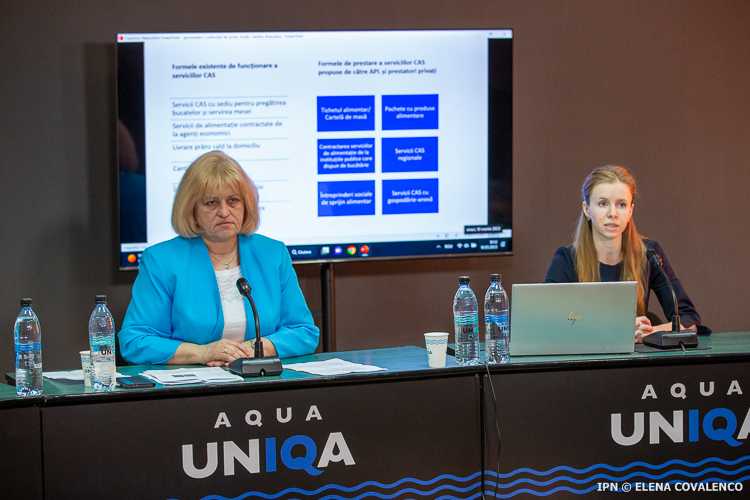The social canteens in the Republic of Moldova are operated with insufficient funds. Most of the providers meet with difficulties in identifying financing as the available budget covers the necessities only partially in the case of 58% of the social canteen services (SCS). Owing to the limited budgets, the costs per warm lunch provided by social canteens are also reduced, shows a study presented by Keystone Moldova.
In a news conference hosted by IPN, Ana Prasolov, director of the project ”Partnerships for inclusive and resilient social canteen services”, said the money obtained through civil society organizations is the main source of financing for 60% of the SCS services. More than half of these services are financed or co-financed by the local public authorities.
Owing to the limited budgets, the costs per warm meal offered by social canteens are also reduced. About half of the SCS services can cover costs of 20 to 35 lei per lunch, while 1/3 – of only 15-18 lei per lunch.
Ana Prasolov said that different forms of SCS services are practiced at national level. The SCS services with facilities for preparing food and serving meals represent 85% of all these services in the country. These are followed by the mobile canteen, food support social enterprise and food parcels.
83% of the beneficiaries consider they need social canteen services for longer than a year or permanently. The beneficiaries’ level of satisfaction with the SCS is high. Most of the respondents said they are very satisfied or satisfied with these services. Those who are not really satisfied or not at all satisfied represent only 2%. Most of the beneficiaries of SCS prefer food parcels instead of warm meals at the social canteen or takeaways.
Keystone Moldova executive director Ludmila Malcoci said the study was conducted in the framework of the EU-funded project ”Partnerships for inclusive and resilient social canteen services” that is co-funded and implemented by P.I. “Keystone Moldova,” P.A. “Concordia. Social Projects” and P.I.S.M. “Diaconia”.
According to her, the applied methodology was complex and included office analysis of the normative framework, a standardized interview for mapping the services and focus group discussions with representatives of the local public administration, public and private social canteen service providers. There were held profound interviews with representatives of the local and central public authorities and conducted an opinion poll centering on the beneficiaries’ level of satisfaction.
- Moldova is in the process of coupling to the European electricity market
- Moldova will pay 54 million lei – dues to international organizations
- Public and commercial buildings will limit indoor lighting by at least 30%. CSE decision
- From January 1, electricity produced during the day will be traded only on the domestic market
- Fish consumption on the rise. MAIA: Choose local product at Christmas and all year round


